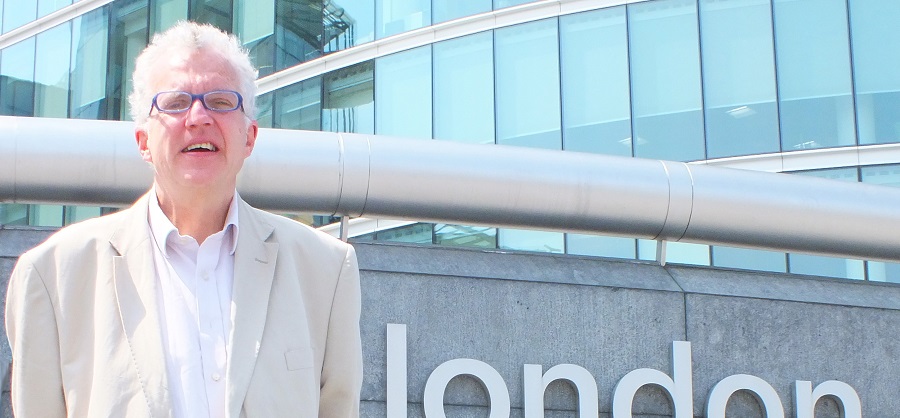Frank Binder, Sown with Corn, Farthings Publishing, £12 99, 412 pages
Christian Wolmar
We all know the story of Hitler’s rapid rise to power. The rallies, the speeches, the military marches, the demagoguery,. But he could only achieve dominance over his people by creating a reign of terror which affected every town, every village, every individual. Little is known about this process which forms the central theme of this deeply disturbing and ever relevant novel.
The story behind the book which was written just after the war but has only now been published is equally fascinating. Binder was a teacher of English Literature at the University of Bonn who spent most of the interwar years there until being forced out in 1937. He was one of the few English people to experience first hand the rise of Nazism which he perceived as destroying all that he loved about the country. It is uncertain whether he was a spy but his powers of observation and analysis are not in doubt.
When he returned to England, he taught at Scarborough High School for Boys and it was through the efforts of one of his former pupils, Michael Rines, that the book has come to light. Binder had a couple of books published in the 1930s which were widely acclaimed and Rines reckoned that such a superb writer must have produced more. Rines, himself a retired journalist, tracked down Binder’s daughter, Elsie and emerged with a trunk full of unpublished manuscripts, of which Sown with Corn was one.
Rines’s instincts could hardly have produced a better result. Binder’s book is a masterpiece, a first hand account of the development of the most dangerous political movement of a century that was not short of rival contenders.
The book, rightly, starts slowly, as languid as the banks of the Rhine which is the setting for the book. Blankheim, where the protagonist, John Arnold, lodges is portrayed as a typical village with all the usual characters but under the quiet exterior there are growing tensions caused by unemployment and poverty. Hungry children often have to resort to knocking at the door of the wealthy Jewish sisters, who appear to own much of the town, and usually are rewarded with a loaf of bread or some fruit. Despite this largesse, anti-semitism is rife but Arnold himself initially appears rather unconcerned about it and even seems on the point of joining in but as he gets to know the two Jewish sisters, his antipathy towards the Nazi movement grows.
Almost imperceptibly, a pro Nazi movement grows within the village led by a self-appointed committee who meet in the local bar, the Golden Hind, with the power to summon people which have displeased its members. Hitherto insignificant local people, disaffected plumbers and penurious school teachers suddenly appear wearing a uniform and exercising power over their neighbours. The ‘Heil Hitler’ salute becomes a clever mechanism to distinguish supporters and potential opponents of the regime who stick to conventional forms of greeting. Another way of distinguishing friend and foe is by the visits of Nazi cadres who ask for donations to various causes and write down the contributions in an accounts book shown to all the villagers.
Although the plot meanders at times, and there are perhaps a few too many diversions – one does so wish that Binder would make a move for one of the two women with whom he seems to be in love – the portrayal of the collapse of a society and its slow but inevitable degeneration into a police state makes for painful but riveting reading. However, it is not all a description of a grim descent into authoritarianism. Arnold finds ways of outwitting the Nazis and using the different factions within the movement to the advantage of their opponents. Other villagers, too, resist both the physical and psychological reign of terror and that is where the book is at its most impressive, begging the questions we all hesitate to ask ourselves. What way would we go? Would we resist? Or would we be like several characters, all too ready to change our political tune to fit in the realities of a new age.
I read this book while in the US and the McCarthy era came to mind. Binder’s novel, therefore, is probably the most unsettling and difficult tome I have ever read, helped by the brilliance of the language and the author’s ability to portray so realistically the dilemmas faced by very ordinary folk in extraordinary times. Every school child now studies Nazism and this book goes much further in explaining how it all happened than any of the conventional history textbooks.
